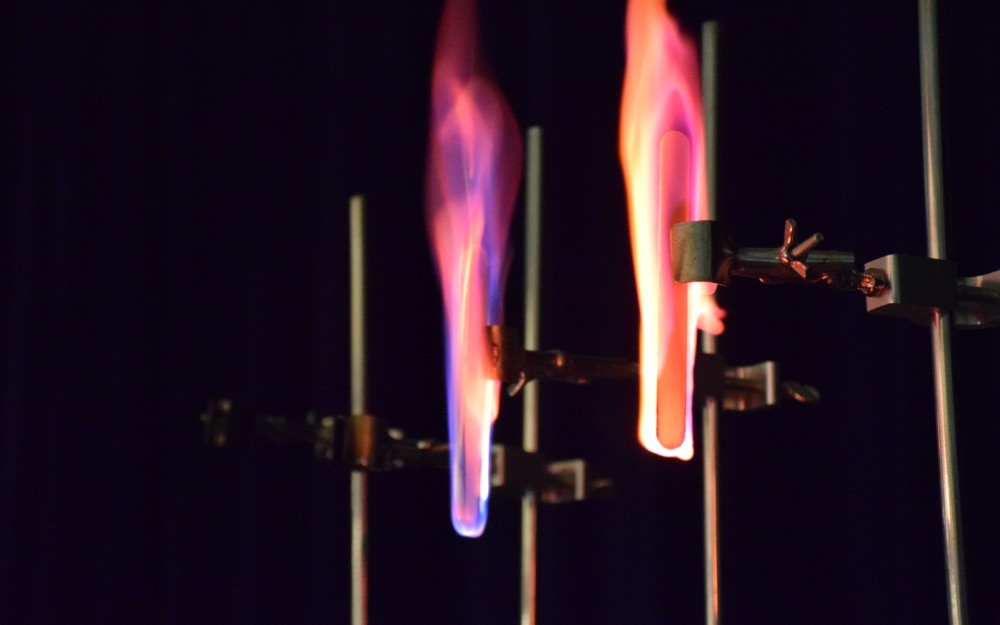Group Demonstration
It's not just a phase - it's the state of science.
Observe reactions that involve a Tesla coil, plasma globe, the pH scale, multicolored fire combustion and dry ice. Discover how these shifting states of matter can determine physical or chemical reactions.

Reserve This Program
Fill out our form to begin your reservation. Group demonstrations last 45 minutes. Each session accommodates up to 200 individuals. Experiences are primarily offered during core hours of 10 a.m. to 3 p.m.
Virtual
- Offered Monday–Friday
- Requires a strong internet connection
- $315 for first virtual demonstration; 10% off each additional virtual demo on the same day
In Person
- Primarily offered on Tuesdays, Wednesdays and Thursdays
- Hosted at your site; requires a classroom, library or other quiet setting
- $400 for first in-person demonstration; 10% off each additional in-person demo on the same day
Requests for alternate days or times will be considered. Within 48 hours after you submit your request, an Education Outreach team member will contact you to discuss your proposed itinerary. Once everything is reviewed and set, the invoice will be sent.
K-12 Florida Education Standards
The following standards are focused by suggested grade levels and aligned to Florida Department of Education benchmarks.
More to Explore
Want to get more from your adventures?
Combine labs, demos and field trips to reinforce learning and fun.
- Invisible Light – Find out how spectroscopy helps scientists identify the elements that make-up celestial bodies millions of miles away.
- Discover Your Universe Field Trip – All objects in our known universe are governed by physics including the astronomical phenomena our researchers study thanks to the Stocker AstroScience telescope – the only research-grade in South Florida.